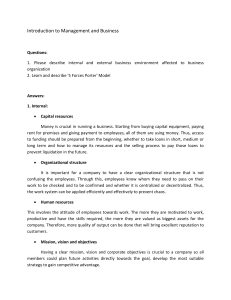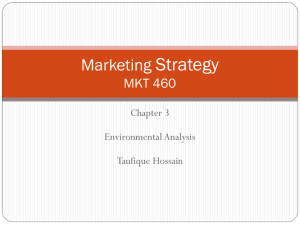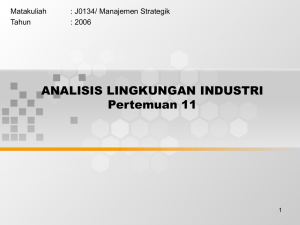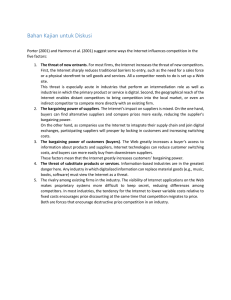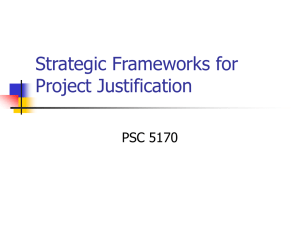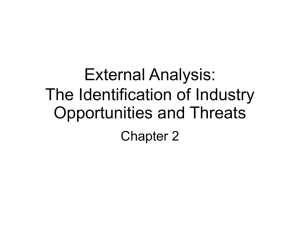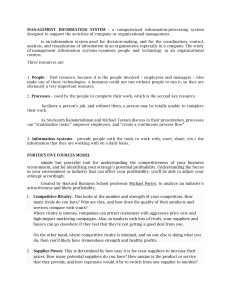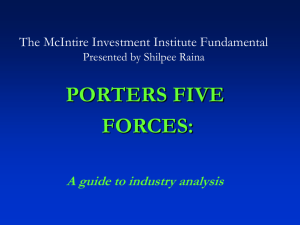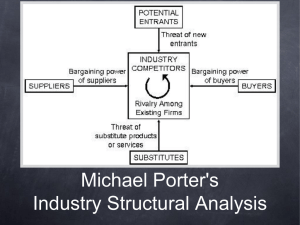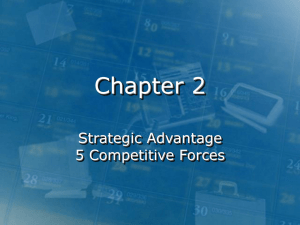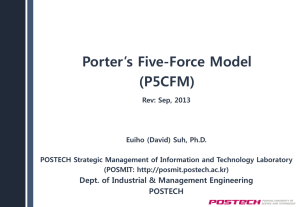Porter's Five Forces
advertisement
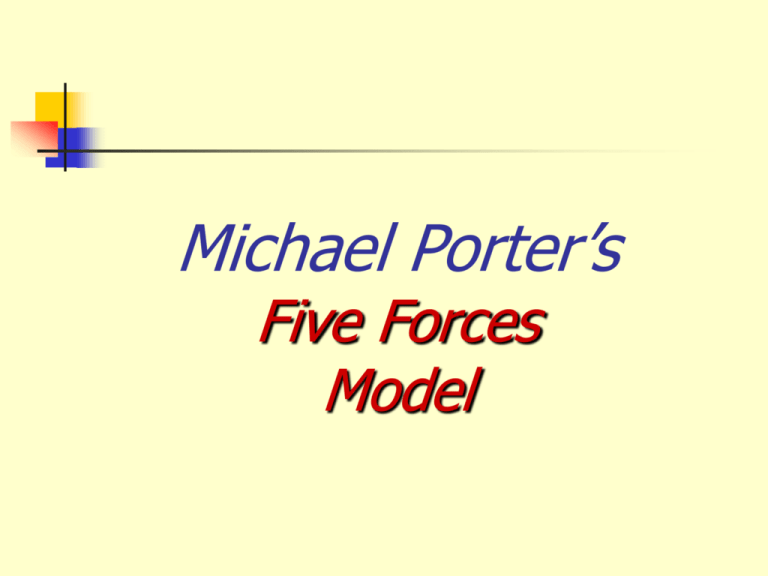
Michael Porter’s Five Forces Model Michael Porter … “An industry’s profit potential is largely determined by the intensity of competitive rivalry within that industry.” Porter’s Five Forces Portfolio Analysis … … Strategy at the time (1970s) was focused on two dimensions of the portfolio grids … … Industry Attractiveness … Competitive Position Where was Michael Porter coming from? School of Economics … … at Harvard … Structural reasons why … … some industries were profitable * Firm concentration * Established cost advantages * Product differentiation * Economies of scale Structural reasons … … all represented barriers to entry in certain industries, thus allowing those industries to be more profitable than others. Porters Five Forces … * Threat of Entry * Bargaining Power of Suppliers * Bargaining Power of Buyers * Development of Substitute Products or Services * Rivalry among Competitors Barriers to Entry … … large capital requirements or the need to gain economies of scale quickly. … strong customer loyalty or strong brand preferences. … lack of adequate distribution channels or access to raw materials. Power of Suppliers … … high when * A small number of dominant, highly concentrated suppliers exists. * Few good substitute raw materials or suppliers are available. * The cost of switching raw materials or suppliers is high. Power of Buyers … … high when * Customers are concentrated, large or buy in volume . * The products being purchased are standard or undifferentiated making it easy to switch to other suppliers. * Customers’ purchases represent a major portion of the sellers’ total revenue. Substitute products … … competitive strength high when * The relative price of substitute products declines . * Consumers’ switching costs decline. * Competitors plan to increase market penetration or production capacity. Rivalry among competitors … intensity increases as * The number of competitors increases or they become equal in size. * Demand for the industry’s products declines or industry growth slows. * Fixed costs or barriers to leaving the industry are high. Summary … As rivalry among competing firms intensifies, industry profits decline, in some cases to the point where an industry becomes inherently unattractive. Porter’s five force model 3/19/2016 www.azadsikander.blogs 16 Analysis 5 Forces Analysis Rivalry among the competitor •Reliance Retail, Aditya Birla Group , Vishal Retail’s, Bharti and Walmart, etc Threat of entrants • FDI policy not favorable for international players. • Domestic conglomerates looking to start retail chains. •International players looking to foray India. Bargaining power of supplier •The bargaining power of suppliers varies depending upon the target segment. •The unorganised sector has a dominant position. • There are few players who have a slight edge over others on account of being established players and enjoying brand distinction. Bargaining power of buyers • Consumers are price sensitive.. •Availability of more choice. •Unorganized retail Threat of substitutes 3/19/2016 www.azadsikander.blogs 17
